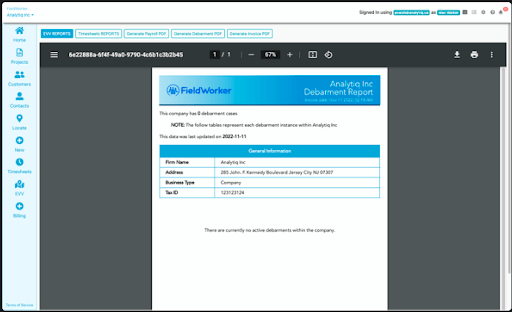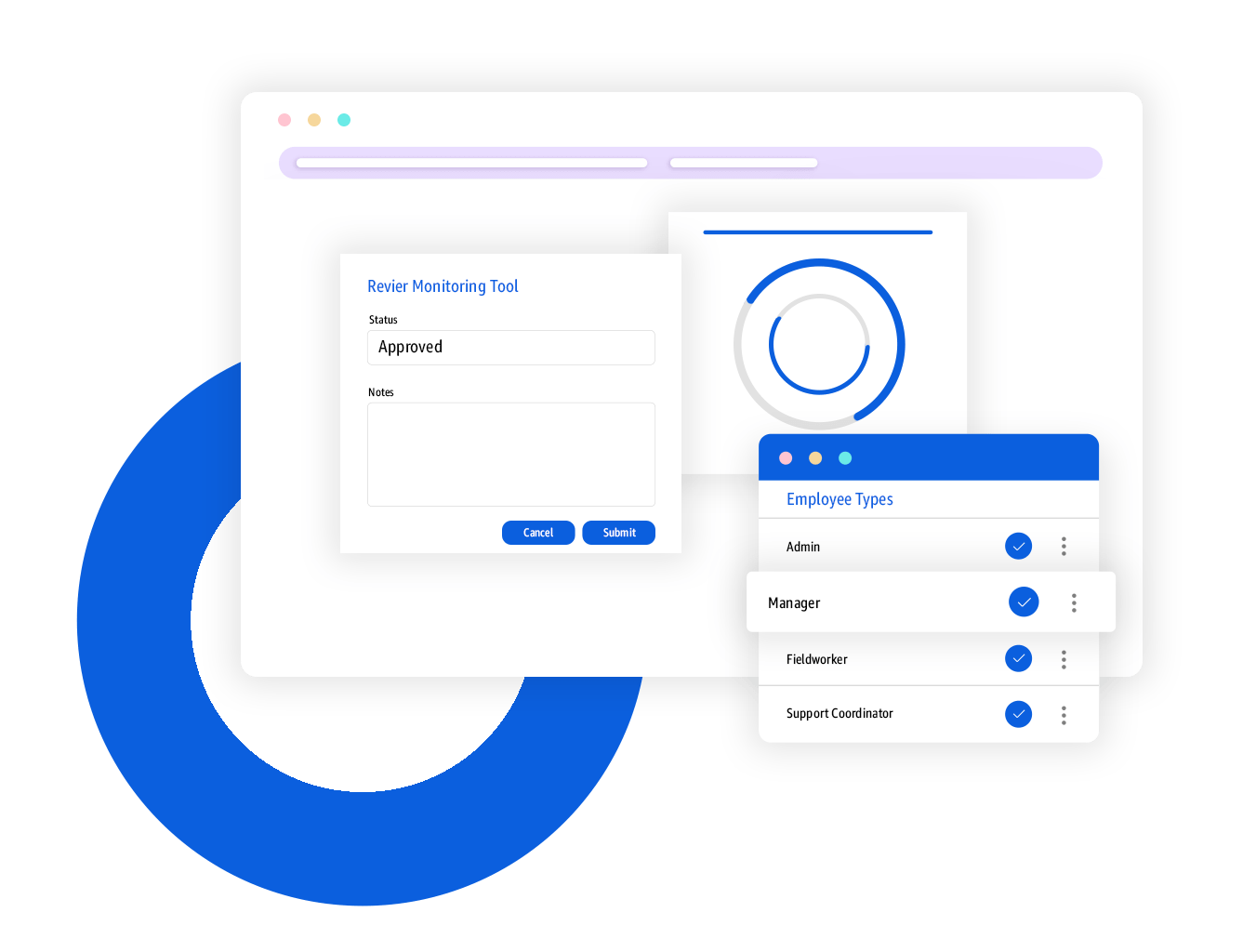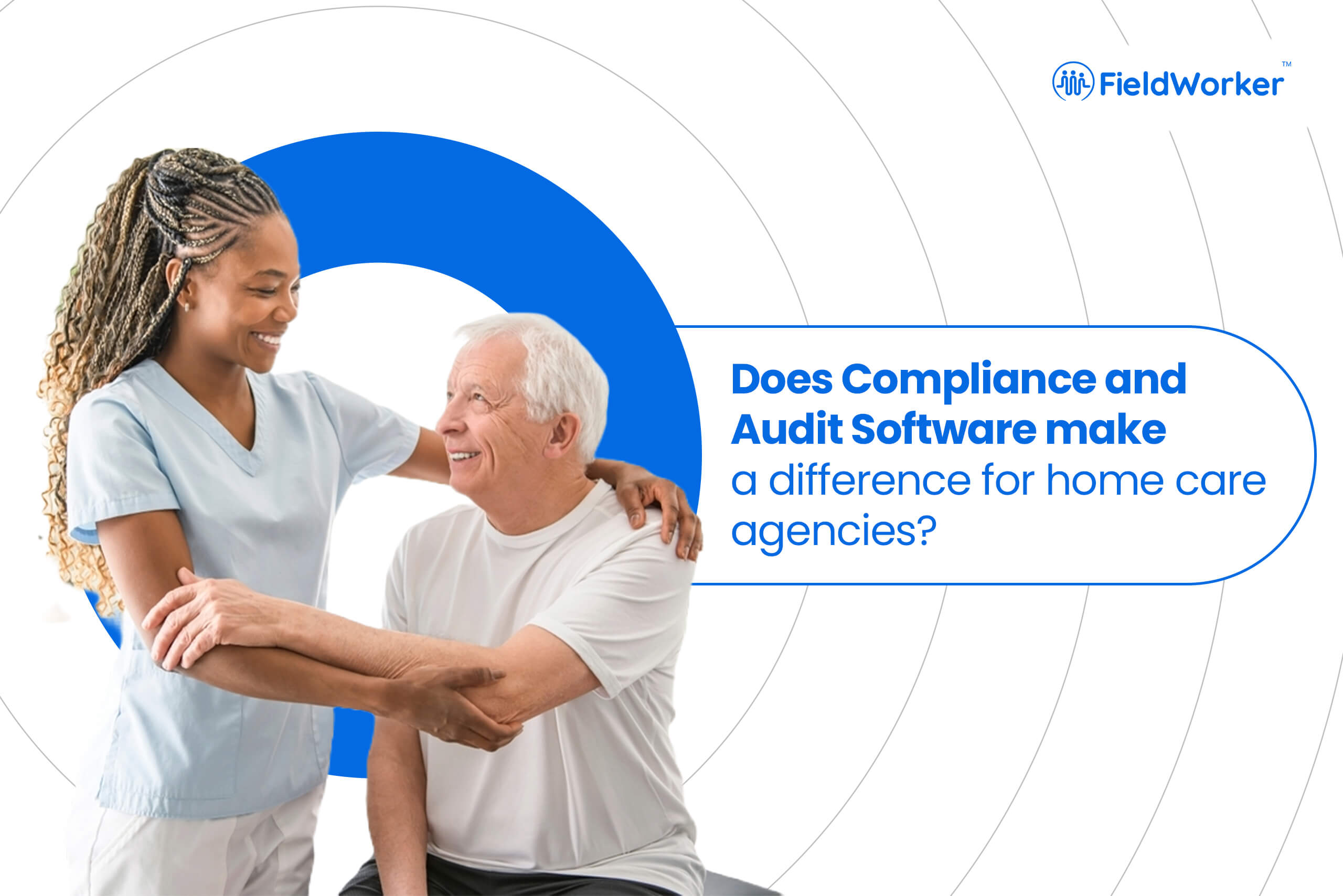With a growing elderly population, home care services become increasingly important. Specifically in New Jersey, there are only 1 million caregivers available for a population of 9 million New Jerseyans. Making a difference with this proportion of caregivers can be a challenge, more so when care agencies falter in being compliant with state-mandated requirements.
Given the sensitive nature of the services home care agencies provide to their clients, it is extremely important that they fully understand and comply with state-mandated requirements. These requirements are a set of rules and regulations that are state-specific and ultimately help protect the well-being of clients and service providers as a whole.
Authoritative bodies like ‘The New Jersey Department of Health’ conduct regular inspections and audits to ensure care agencies are providing services in a compliant manner. During audits, these bodies review detailed documents such as service records, case notes, EVVs, client forms, and progress reports to ensure the clients get the care they need. Regular audits help,
- Protect client rights: Ensure that clients receive the care they need, and are treated with respect and dignity.
- Deliver quality care: Ensure their clients that they are being provided with the right care following best practices and standards.
- Maintain financial accountability: Ensure that allocated funds are being used appropriately and efficiently.
Being compliant with multiple regulations can be a complex task when managing a diverse client profile. That’s when compliance and audit softwares can greatly assist home care agencies manage their compliance efforts stress-free!
Common audit issues faced by home care agencies
Providing care that fits the dynamic boundaries of state mandates can be a time-consuming and costly challenge for many home care agencies. In recent years, NJ reports suggest that in 23% of audited cases, central registry checks were not completed properly. About 10% of the cases were missing their quarterly MTs and 12% were missing annual home visit documentation- making it difficult to track and monitor compliance.
The role of compliance and audit software

The key role of compliance and audit software is to help care coordination agencies manage and track an agency’s adherence to service-specific rules, state standards, and policies. They simplify the process of compliance by automating manual processes such as:
- Tracking caregiver qualifications: check the level of certification and training the care provider has. Recent NJ reports show that 36% of compliance cases were missing the required DDD training.
- Assess the quality of service delivery: monitor patient outcomes following their care plans.
- Track complaints: manage client incident reports and address them accordingly.
- Maintain data privacy: protect client health information by being HIPPA compliant.
What are the benefits of compliance audit software?

Apart from automation, compliance audit software offers a range of benefits that can significantly improve an agency’s operational efficiency. It acts as a central repository that stores all the relevant information and documentation in one place. This saves the time spent on data search further enhancing operational efficiency.
With the help of compliance audit softwares, care agencies can generate customizable reports that provide valuable insights about the agency’s compliance performance. These data-driven insights help agencies make informed decisions that ultimately improve the quality of service delivery.
Furthermore, such versatile softwares help improve the compliance posture of home care agencies. By adhering to state-mandated standards, tracking and addressing compliance issues, and continuously monitoring audit compliance agencies can reduce the risk of non-compliance, fines, and even penalties proactively.
Check out more about Audits here!
How to evaluate audit compliance software?
Running a care coordination agency comes with its own set of complexities. Hence, evaluating the effectiveness of software is a crucial assessment every agency must do. A suitable software will ensure high-quality services are being provided to clients in an orderly manner.
The right compliance software will meet Division waiver requirements without any extra effort. It will ensure that your agency meets the requirements necessary for claiming Medicaid or avoiding fraud.
The right audit compliance software will heighten your agency’s compliance capabilities by seamlessly integrating into your daily workflows. One such platform that makes compliance easy for agencies is FieldWorker. Its comprehensive set of compliance tools will make sure services billed:
- match with a qualifying task in the system.
- are documented when needed and on the correct date of service.
- are cross-checked with qualified staff members.
- are not duplicated or missed.
- are signed when needed.
Parting thoughts
Compliance and audit software are key tools for navigating the dynamic landscape of state-mandated requirements. It offers a wide range of benefits that can significantly improve the operational efficiency of care coordination agencies. Automating monotonous compliance tasks and keeping workflows organized, these tools help agencies meet state standards more easily.
Besides saving time and boosting care service quality, compliance audit software can positively impact team culture. By fostering a culture of compliance, social agencies can create a more ethical and responsible workplace. This results in increased employee morale, better customer relationships, and a stronger agency
Hence, investing in onboarding a reliable care partner like FieldWorker can reduce a care coordination agency’s risk exposure, alleviate the challenge of service compliance, and show commitment to ethical practices. Sign up for FREE and get your agency a reliable compliance partner today!

